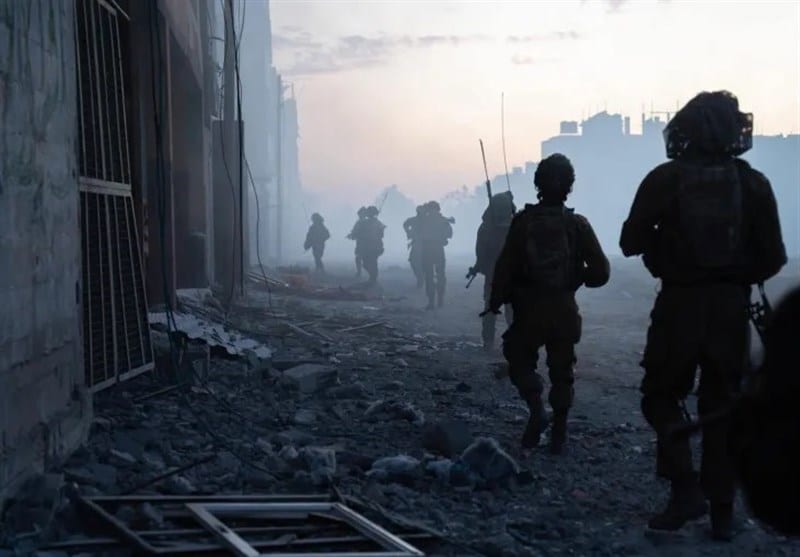Unattainable goals of Netanyahu.
The heavy shock that “Al-Aqsa Storm” inflicted on the Zionist regime was caused by two effective factors in this precise operation: First, the complete surprise of the enemy, in such a way that the security apparatus and the army had no estimate of it, the selected area from The resistance side was devoid of military and deterrent forces for the operation, and therefore they achieved all their goals; Second, to fulfill these goals and capture a significant number of Zionists by the resistance.
Since the official announcement of the occupation of Palestine, for the first time during the Al-Aqsa storm, the Zionist regime was in a position where movement or standing still would fail. Failure to enter the Gaza Strip means accepting defeat against the resistance and being under the deterrence of the resistance, and entering the Gaza Strip has brought heavy costs and casualties. The Zionist regime, which did not have the patience to accept such a defeat, started a crazy all-out attack against the Gaza Strip. To eliminate the above two factors, in the same mental atmosphere full of madness ruling the regime’s decision-makers, 2 goals were defined for the occupying army: first, to destroy the resistance by eliminating all its leaders, second, to return all the prisoners Israel.
Unattainable goals
The goal, in the design of every plan and operational action, must have a main feature, and that is, it can be achieved in a certain period. The goals that the Zionist regime defined for its army in this battle were considered unattainable goals from the very beginning.
In this regard, “Ehud Barak”, the former Prime Minister and Minister of War of the Zionist regime – who is considered one of the prominent military officers in the military circles of this regime – announced in an interview in the very first days of the war that destroying Hamas is a matter it’s impossible; Because if the Zionist army succeeds in eliminating all the leaders of Hamas, the ideology of Hamas cannot be destroyed and resistance will be created from this ideology. A few days ago, “Ishaq Brik”, the former inspector of the Zionist regime’s army, also acknowledged this issue and said: “We will not be able to eliminate Hamas.” This goal is getting further away from us day by day.
Although the Zionist army claims to have discovered hundreds of tunnels, it has not been able to reach even one of the second or third-rank commanders of the resistance. Let alone eliminate “Yahya Sanwar” or “Mohammed Al-Dzaif”. They expressed their happiness when they got a copy of the identification card of “Mohammed al-Dazif” and said that they had approached him, but there was still no news of the resistance commanders in Gaza.
Among the previously announced goals of the Israeli authorities, the acquisition of prisoners was perhaps more achievable than the goal of destroying Hamas. But with time, it became clear that this seemingly simpler goal cannot be studied. The issue that the field commanders of the army are now confirming.
Confessions of Army Commanders
Last Saturday, the American newspaper “New York Times” published a report that was the result of an interview with 4 high-ranking field officers of the Zionist Army. These officers agreed to be interviewed by “The New York Times” on the condition that their identities remain hidden; Because they are not allowed to share their personal views with the media.
A New York Times report states: The two goals of rescuing prisoners and destroying Hamas are incompatible and conflicting with each other. The long battle aimed at definitively eliminating Hamas will most likely end at the cost of the lives of Israeli prisoners held in Gaza after the October 7 attack.
The second confession of these officers is related to “Netanyahu’s” crazy decisions. This made these officers admit that: because of the lack of decision-making by the Israeli political leadership, the strategic problems are in a worse state. Prime Minister Netanyahu’s statements about the post-war plan are part of this problem. Until long-term post-war plans for the Gaza Strip are drawn up, the army will not be able to make short-term tactical decisions to capture the parts of Gaza still held by Hamas.
The important point in this section is that the future of Gaza is also related to Egypt, but Cairo is not willing to involve itself in Israeli operations after the end of the war without receiving a guarantee for the status of Gaza.
The third point that these commanders strongly expressed their concern about is the impact of this war on the relations and foreign policy of the Zionist regime. A point that worries them about the ability of the Zionist regime to maintain its security. They declared that the deterioration of Israel’s foreign policy, which is caused by the developments of the current war, can hurt Israel’s power to provide and maintain its security.

